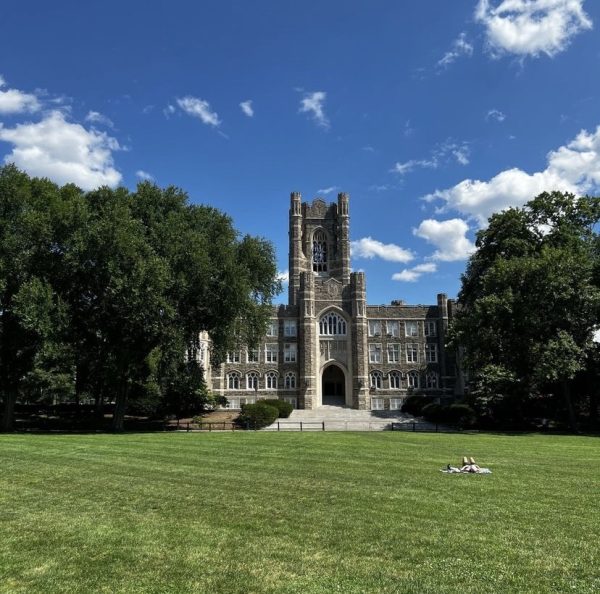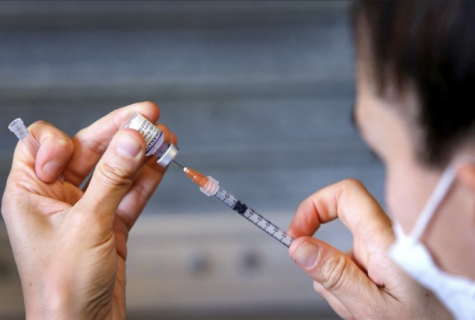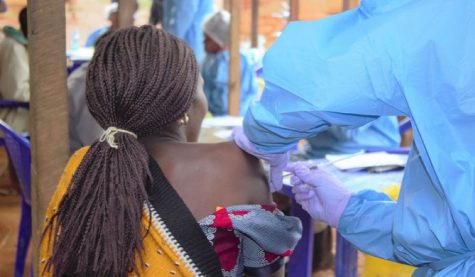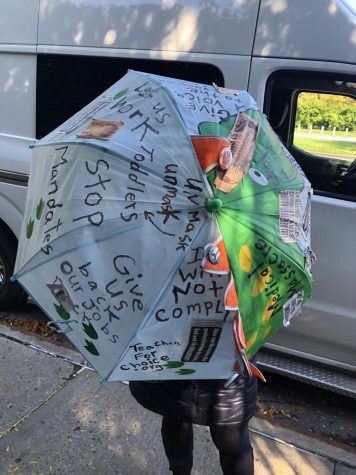Paving the Way Forward
It is an interesting time right now in the world. That is something I could probably write anytime, about anything, whether that is due to the effects of climate change, political strife or the constant challenges of adapting to an evolving pandemic.
The latter is what is on my mind today. I say that because, on one hand, things have never felt so normal. We are fortunate enough to be spending time with friends on Fordham’s campus, producing a print newspaper in-person, taking notes in a classroom rather than on Zoom and visiting New York City on the weekend. There are still face masks, of course, but everything beyond that feels largely the same.
And that is especially true in sports. Take this weekend, perhaps the biggest of the year, as a primary example. Right here in that same city devastated by the pandemic one year ago, 43,144 people — around 1,200 above capacity — gathered at Citi Field in Queens to remember the tragic events of September 11 and celebrate the game that helped New Yorkers grieve through it.
One day later and one state over, another 74,000 filed into MetLife Stadium in the Meadowlands to kick off the NFL season. America’s biggest game that saw empty seats in its 2020 season witnessed full stands in its opening week.
Then there is the sport dependent on fans more than any other: college football. Fans are not just a part of Saturdays, but the lifeblood.
Look at ESPN’s “College Gameday,” back on the road again with Lee Corso making his iconic mascot choice for the week’s biggest game. Look at the packed Ohio Stadium with over 100,000 on hand to watch their Buckeyes fall to the Oregon Ducks in the season’s biggest game yet.
There was a time when I actually enjoyed the concept of fanless sports, as crazy as that might sound, and the opportunity to just focus on the game in a sterile, untarnished environment. And there were certainly moments, whether they be racist taunting in the soccer world or the constant fans seen running on the field in Yankee Stadium, where I questioned if fans even deserved to be in attendance.
This weekend proved, as silly as it may sound to some, that I was very wrong. The moments contained within a short three-day period will remain etched in time in my mind because of the people that made them happen. These moments would not have been as special without them.
At the same time, though, I have a hard time looking at these realities with rose-tinted glasses. There is still a relative uneasiness when seeing such stadiums amid the current pandemic. It is the same uneasiness I’ve gotten when in a crowded subway or restaurant or when the thought goes through my head of whether the person beside me is sick.
Those thoughts, however, have not stopped me from doing those things, from going to those very stadiums. Perhaps that is because this is a city with a very high vaccination rate or that I am a 19-year-old, low-risk individual. It is not just about me, though; it is about thinking of how we could be making a better effort.
We could set an example like the NFL, enacting the strictest vaccine mandates of any professional sports league. There are shortcomings in its protocols to be sure, and the end goal is likely the bottom dollar rather than player safety, but it is a move that will likely have both effects. Despite all the pushback surrounding it, the vaccination rate has surged above 90%.
Take certain stadiums, like those of the New Orleans Saints, Las Vegas Raiders or Seattle Seahawks that will require a negative COVID-19 test or vaccination before attending a game. Again, it seemed harsh at the time, but now, a majority of fans might even prefer it. I certainly do when visiting a restaurant or theater here in the city. It makes me question why venues like Yankee Stadium ever removed such mandates in the first place.
COVID-19 is not disappearing anytime soon; that much has become apparent. The issue is only becoming magnified by the lagging vaccine rate both in this country and across the world. Vaccination is the best route forward. Mandates might just be the way to achieve that.
I think of one story that popped up on Twitter the other day that referred to an Oregon Ducks fan that received the COVID-19 vaccine solely to attend home football games after Autzen Stadium’s vaccine mandate. That might be what it takes.
Stadiums and leagues have an opportunity to make an impact. They are watched by many and can inspire millions. I can only hope that more people begin to understand that influence and make the decisions that will help this country move forward, and that other industries soon do the same.

Alexander Wolz is a sophomore majoring in communication and culture. He went from writing to assisting and will now be Sports Editing. He also loves video...













































































































































































































